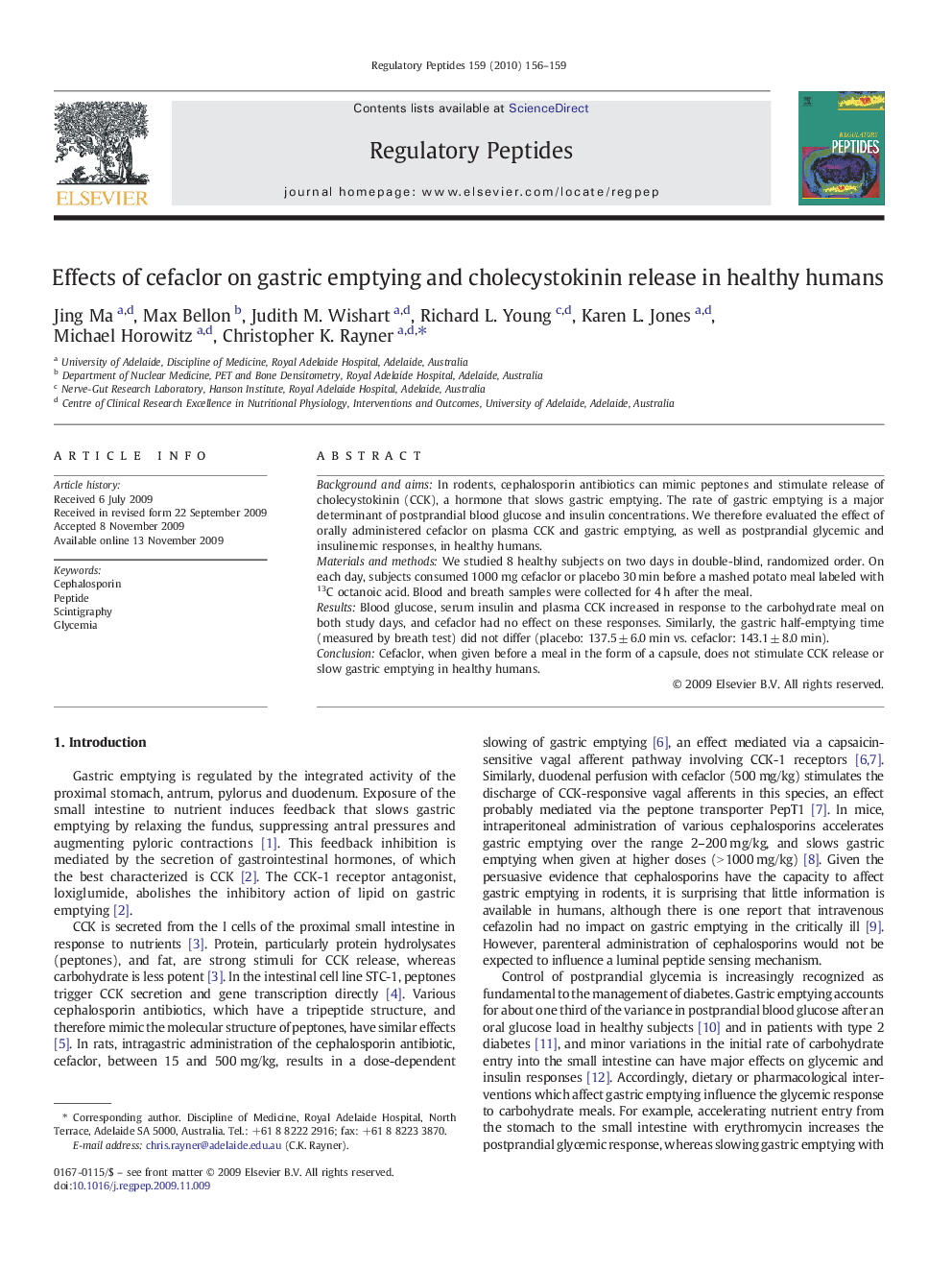| Article ID | Journal | Published Year | Pages | File Type |
|---|---|---|---|---|
| 2022988 | Regulatory Peptides | 2010 | 4 Pages |
Background and aimsIn rodents, cephalosporin antibiotics can mimic peptones and stimulate release of cholecystokinin (CCK), a hormone that slows gastric emptying. The rate of gastric emptying is a major determinant of postprandial blood glucose and insulin concentrations. We therefore evaluated the effect of orally administered cefaclor on plasma CCK and gastric emptying, as well as postprandial glycemic and insulinemic responses, in healthy humans.Materials and methodsWe studied 8 healthy subjects on two days in double-blind, randomized order. On each day, subjects consumed 1000 mg cefaclor or placebo 30 min before a mashed potato meal labeled with 13C octanoic acid. Blood and breath samples were collected for 4 h after the meal.ResultsBlood glucose, serum insulin and plasma CCK increased in response to the carbohydrate meal on both study days, and cefaclor had no effect on these responses. Similarly, the gastric half-emptying time (measured by breath test) did not differ (placebo: 137.5 ± 6.0 min vs. cefaclor: 143.1 ± 8.0 min).ConclusionCefaclor, when given before a meal in the form of a capsule, does not stimulate CCK release or slow gastric emptying in healthy humans.
